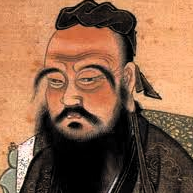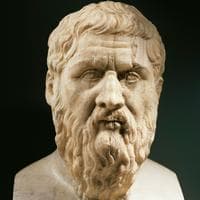Zhu Xi mbti kişilik türü
Kişilik
"Zhu Xi hangi kişilik türü? Zhu Xi, MBTI, 1w9 - - 'de INFJ kişilik türüdür, RCOEI, RCOEI, büyük 5, LII' dır."
这么明显的fe-ti轴都分析不出来吗?【理在人身上就是人性。朱熹又称理为太极,是天地万物之理的总体,即总万理的那个理。气是朱熹哲学体系中仅次于理的第二个范畴。它是形而下者,是有情、有状、有迹的;它具有凝聚、造作等特性。它是铸成万物的质料。天下万物都是理和质料相统一的产物。朱熹认为理和气的关系有主有次。理生气并寓于气中,理为主,为先,是第一性的,气为客,为后,属第二性。】——以fe框架承载ni原型,三功能ti用来逻辑自洽。这里根本没有te和fi。。 【“格物致知”的具体内容是“穷天理,明人伦,讲圣言,通事故。”(《文集》)这里的“天理”主要是指仁、义、礼、智等封建道德,“人伦”、“圣言”、“事故”则是天理的阐发应用。】——“仁义礼智信”的fe框架。 【“理”在人未形成之前浑然于天空,于人一旦形成,便附于人体,成为先验禀赋于人心的仁、义、礼、智等封建道德,是先天的善性所在,人人皆有,故名“天命之性”。人体形成之时,必禀此气,由于气精粗、厚薄、清浊、久暂的不同,就产生了善恶、贤愚、贫富、寿夭的不同和性格上的差异。它有善有恶,名曰“气质之性”。上述二性并存于人身,这就是朱熹的人性二元论观点。】——ni+fe 在五岁的时候就开始构建独特的自我形象,在临死前仍然坚守自己的自我形象,履受攻讦仍不改志,我更倾向于认为这是sp4w5。
Biyografi
Zhu Xi ([ʈʂú ɕí]; Chinese: 朱熹; October 18, 1130 – April 23, 1200), also known by his courtesy name Yuanhui (or Zhonghui), and self-titled Hui'an, was a Chinese calligrapher, historian, philosopher, politician, and writer of the Song dynasty. He was a Confucian scholar and influential Neo-Confucian in China. His contributions to Chinese philosophy including his editing of and commentaries to the Four Books, which later formed the curriculum of the civil service exam in Imperial China from 1313 to 1905; and his emphasis on the process of the "investigation of things" (Chinese: 格物; pinyin: géwù) as well as his meditation as a method for self cultivation, fundamentally shaped the Chinese as well as the worldview for posterity.















